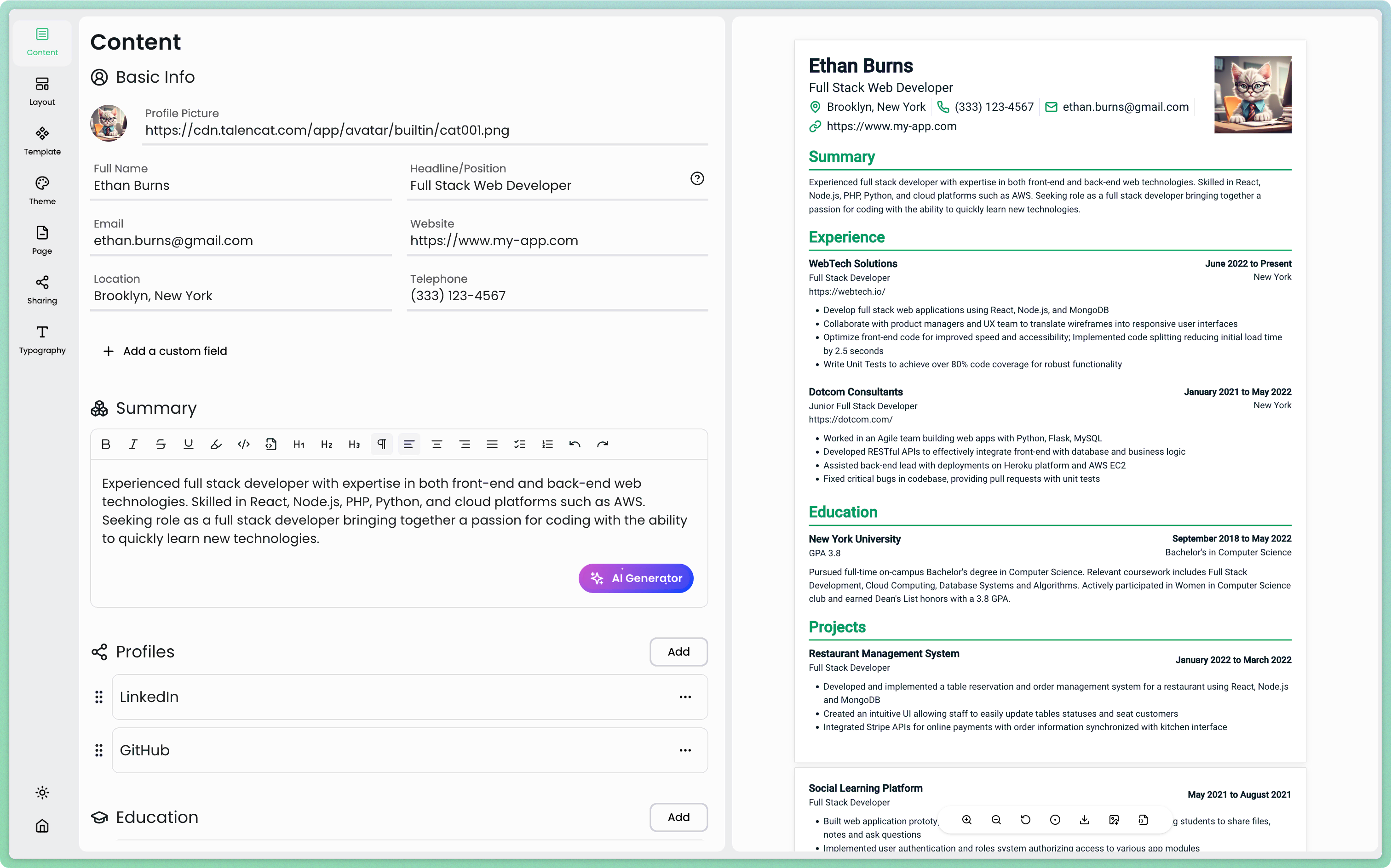Interviewing for a youth pastor position is a crucial process that requires careful consideration and thoughtful questioning. This comprehensive guide aims to equip church leaders and hiring committees with the essential tools to conduct effective interviews while also providing valuable insights for candidates preparing for such interviews. By focusing on key areas such as spiritual leadership, youth engagement, and practical ministry skills, this article will help ensure that the right candidate is selected to lead and inspire the next generation of young believers.
Introduction
Importance of Interviewing Youth Pastors
The role of a youth pastor is pivotal in shaping the spiritual lives of young people within a church community. A well-conducted interview process is essential to identify candidates who not only possess the necessary theological knowledge but also demonstrate the ability to connect with and guide youth through their formative years. The right youth pastor can significantly impact the spiritual growth and long-term faith commitment of young congregants.
Overview of Key Considerations
When interviewing potential youth pastors, it's crucial to assess various aspects of their qualifications, including their spiritual maturity, leadership abilities, and understanding of youth culture. The interview process should aim to uncover the candidate's passion for youth ministry, their approach to biblical teaching, and their strategies for building meaningful relationships with both young people and their families.
Types of Interview Questions
Effective interviews for youth pastor positions typically incorporate a mix of question types to gain a comprehensive understanding of the candidate's suitability for the role.
General Questions
General questions help establish a baseline understanding of the candidate's background and overall approach to ministry.
Personal Motivation and Background
These questions delve into the candidate's personal journey and reasons for pursuing youth ministry.
Sample Question: "What inspired you to become a youth pastor?"
Expert Answer: "My journey towards youth ministry began during my own teenage years when I experienced the profound impact of a dedicated youth leader in my life. This mentor not only helped me navigate the challenges of adolescence but also deepened my faith in Christ. Witnessing firsthand how effective youth ministry can transform lives, I felt called to pay it forward and dedicate my life to guiding young people in their spiritual journeys. I believe that the teenage years are crucial for faith formation, and I'm passionate about creating an environment where youth can explore their beliefs, ask tough questions, and develop a lasting relationship with God."
Philosophy of Youth Ministry
Understanding a candidate's philosophy of youth ministry provides insight into their overall approach and priorities.
Sample Question: "How do you balance fun activities with spiritual growth in youth ministry?"
Expert Answer: "I believe that fun and spiritual growth are not mutually exclusive but rather complementary aspects of effective youth ministry. My approach is to integrate spiritual lessons into engaging activities, creating an environment where youth can enjoy themselves while also deepening their faith. For example, I might organize a game night that includes team-building exercises that illustrate biblical principles of unity and cooperation. Additionally, I ensure that there are dedicated times for more focused spiritual growth, such as Bible studies and prayer sessions. The key is to maintain a dynamic balance that keeps youth engaged while consistently pointing them towards Christ and His teachings."
Behavioral Questions
Behavioral questions help assess how candidates have handled real-life situations in the past, providing insights into their problem-solving skills and practical application of their ministry philosophy.
Real-Life Scenarios and Experiences
These questions explore how candidates have navigated challenging situations in their previous roles.
Sample Question: "Can you describe a time when you had to address a sensitive issue with a youth or their parents?"
Expert Answer: "In my previous role, I encountered a situation where a teenager in our youth group was struggling with depression but was hesitant to seek help. I approached this delicate situation by first building trust with the youth through one-on-one conversations, showing genuine care and concern. Once I gained their confidence, I gently encouraged them to open up about their feelings. With their permission, I then involved their parents, facilitating a compassionate and supportive conversation. I also connected the family with professional counseling resources within our church network. Throughout the process, I maintained open communication with all parties involved, respecting confidentiality while ensuring the youth's safety and well-being. This experience reinforced the importance of creating a safe space for youth to share their struggles and the value of a collaborative approach in addressing sensitive issues."
Skills and Competencies
Questions in this category assess the candidate's practical abilities and how they apply their skills in ministry settings.
Sample Question: "How do you approach conflict resolution among youth in your ministry?"
Expert Answer: "Conflict resolution is a crucial skill in youth ministry. My approach begins with active listening to understand all perspectives involved. I create a safe environment where each party feels heard and respected. Then, I guide the youth through a process of identifying the root causes of the conflict and brainstorming potential solutions together. I emphasize the importance of forgiveness and reconciliation, drawing on biblical principles. If necessary, I involve parents or other adult leaders, always with the goal of restoring relationships and fostering personal growth. I also use these situations as teaching moments, helping youth develop their own conflict resolution skills that they can apply in various aspects of their lives."
Specific Interview Questions for Youth Pastors

Spiritual and Theological Questions
These questions aim to assess the candidate's spiritual depth and theological understanding, which are fundamental to their role as a spiritual leader for youth.
Understanding of the Gospel
It's crucial to ensure that the candidate has a clear and biblically sound understanding of the gospel message.
Sample Question: "How would you explain the gospel to a teenager who has never heard it before?"
Expert Answer: "When explaining the gospel to a teenager, I would start by establishing a relational context, acknowledging that we all face challenges and seek purpose in life. I'd then introduce the concept of a loving God who created us for a relationship with Him, but explain how sin has separated us from God. I would describe how God, in His love, sent Jesus Christ to bridge this gap through His life, death, and resurrection. I'd emphasize that through faith in Jesus, we can receive forgiveness, reconciliation with God, and eternal life. I would use relatable analogies and encourage questions throughout the conversation, ensuring that the message is both clear and relevant to a teenager's life experiences."
Personal Faith Journey
Understanding a candidate's personal faith journey provides insight into their spiritual maturity and ability to relate to youth.
Sample Question: "How has your faith evolved since you first became a Christian, and how does this influence your ministry to youth?"
Expert Answer: "My faith journey began in my early teens when I accepted Christ, but it has grown significantly since then. I've experienced periods of doubt and questioning, which have ultimately strengthened my faith. These experiences have taught me the importance of creating a safe space for youth to explore their own doubts and questions. My understanding of God's grace has deepened, influencing how I approach youth who may be struggling with guilt or feeling unworthy. I've also learned the value of spiritual disciplines like prayer and Bible study, which I now actively incorporate into my youth ministry. This evolution in my faith allows me to relate more authentically to the struggles and growth experiences of the youth I serve, helping them navigate their own faith journeys with empathy and wisdom."
Youth Engagement and Ministry Strategies
These questions explore the candidate's ability to connect with youth and implement effective ministry strategies.
Approaches to Engaging Youth
Understanding how a candidate plans to engage and involve youth in the ministry is crucial.
Sample Question: "What strategies do you use to keep youth engaged in church activities and spiritual growth?"
Expert Answer: "Engaging youth in church activities and spiritual growth requires a multi-faceted approach. I focus on creating a welcoming and inclusive environment where youth feel valued and heard. I incorporate interactive and experiential learning methods in our Bible studies and discussions, making the lessons relevant to their daily lives. I also leverage technology and social media to stay connected and share encouraging content throughout the week. Additionally, I involve youth in service projects and leadership roles within the church, fostering a sense of ownership and purpose. Regular social events and retreats help build community and deepen relationships. Most importantly, I prioritize building personal relationships with each youth, showing genuine interest in their lives and being available for one-on-one mentoring."
Creating a Welcoming Environment
The ability to create an inclusive and welcoming atmosphere is essential for effective youth ministry.
Sample Question: "How do you ensure that newcomers feel welcome and integrated into the youth group?"
Expert Answer: "Creating a welcoming environment for newcomers is crucial for the growth and health of a youth ministry. I start by training a team of youth leaders to be on the lookout for new faces and to greet them warmly. We have a system in place where newcomers are paired with a friendly 'buddy' who introduces them to others and helps them navigate their first few visits. I make it a point to personally welcome each new youth and have a brief conversation to get to know them. We also have icebreaker activities at the beginning of our gatherings to help everyone feel included. Follow-up is key, so I ensure that newcomers receive a personal message or call after their first visit, inviting them back and addressing any questions they might have. The goal is to make every youth feel valued and part of the community from day one."
Leadership and Teamwork
Assessing a candidate's leadership skills and ability to work collaboratively is important for ensuring the overall success of the youth ministry.
Collaboration with Other Ministries
The ability to work effectively with other church ministries is crucial for a well-integrated youth program.
Sample Question: "How do you approach collaborating with other ministries within the church to create a cohesive youth program?"
Expert Answer: "Collaboration with other ministries is essential for creating a holistic and effective youth program. I prioritize building strong relationships with leaders of other ministries, such as children's ministry, adult education, and worship teams. Regular meetings with these leaders allow us to align our goals and share resources. I look for opportunities to integrate youth into the broader church community, such as having them serve in children's ministry or participate in all-church events. I also invite leaders from other ministries to speak or participate in youth events, providing diverse perspectives and helping youth see how they fit into the larger church body. By fostering these connections, we create a seamless transition for youth as they grow and ensure that the youth ministry supports and complements the overall vision of the church."
Conflict Resolution Strategies
Understanding how a candidate handles conflicts is important for maintaining a healthy ministry environment.
Sample Question: "Describe your approach to resolving conflicts between youth leaders or volunteers in your ministry."
Expert Answer: "When conflicts arise between youth leaders or volunteers, I approach the situation with a commitment to open communication and mutual respect. First, I meet individually with each party involved to understand their perspectives fully. Then, I bring them together for a mediated discussion, focusing on active listening and finding common ground. I guide the conversation towards identifying the root causes of the conflict and brainstorming solutions that align with our ministry's values and goals. Throughout the process, I emphasize the importance of unity in our shared mission of serving youth. If necessary, I involve a neutral third party, such as a senior pastor or counselor, to provide additional insights or mediation. After resolution, I follow up to ensure the agreed-upon solutions are implemented and relationships are being restored. This approach not only resolves conflicts but also strengthens our team and models healthy conflict resolution for the youth we serve."
Practical Tips for Conducting Interviews
Conducting effective interviews requires more than just asking the right questions. It involves creating the right environment and employing effective interviewing techniques.
Creating a Comfortable Environment
A comfortable interview setting can help candidates relax and present their best selves. Consider conducting the interview in a casual setting, such as a church lounge or local café, rather than a formal office. Ensure that the space is quiet enough for clear communication and free from distractions.
The Role of the Interview Panel
When using an interview panel, ensure that each member understands their role and the types of questions they should ask. A diverse panel that includes church leadership, current youth volunteers, and even mature youth representatives can provide a well-rounded assessment of the candidate.
Effective Listening and Follow-Up Questions
Active listening is crucial during the interview process. Pay attention to the candidate's responses and ask follow-up questions to delve deeper into their experiences and thought processes. This approach can reveal valuable insights that might not be captured by prepared questions alone.
Preparing for the Interview as a Candidate
For youth pastor candidates, thorough preparation is key to a successful interview.
Researching the Church and Community
Candidates should thoroughly research the church's history, mission, and values, as well as the demographics and culture of the surrounding community. This knowledge demonstrates genuine interest and helps candidates tailor their responses to the specific needs of the church and its youth.
Self-Reflection on Personal Mission and Values
Before the interview, candidates should reflect on their personal mission and values in youth ministry. Being able to articulate these clearly and show how they align with the church's vision can make a strong impression during the interview.
Common Mistakes to Avoid
Lack of Preparation
Failing to prepare adequately can lead to missed opportunities to assess or demonstrate important qualities. Interviewers should have a well-structured set of questions, while candidates should be ready to discuss their experiences and vision for youth ministry in detail.
Focusing Solely on Theological Knowledge
While theological understanding is important, it shouldn't be the sole focus of the interview. Balancing questions about doctrine with those about practical ministry skills, relational abilities, and cultural awareness provides a more comprehensive assessment of a candidate's suitability for the role.
TalenCat: Prepare for Youth Pastor Interview Questions
As a youth pastor candidate, preparing for your interview is crucial. TalenCat CV Maker, an innovative online resume builder, can help you anticipate and prepare for potential interview questions based on your resume content.
Step 1: Log in to TalenCat CV Maker and create or upload your youth pastor resume.
Step 2: Navigate to the "AI Assistant" feature and select "Interview Assistant" from the left-side menu. This powerful tool will analyze your resume thoroughly.

Step 3: Click "Analyze Now" to generate tailored interview questions based on your youth pastor resume.

Step 4: Review the generated questions and prepare your responses. These questions will likely cover your experience with youth ministry, leadership skills, and theological knowledge.

By using TalenCat CV Maker's Interview Assistant, you'll be well-prepared to showcase your passion for youth ministry and your qualifications during the interview.
Remember, being prepared not only boosts your confidence but also demonstrates your commitment to the role. With TalenCat CV Maker, you're taking a proactive step towards securing that youth pastor position you've been aspiring for.
Conclusion
Recap of the Importance of Thoughtful Questions
The interview process for selecting a youth pastor is a critical endeavor that requires careful attention and well-planned questioning. Through thoughtful and comprehensive questioning, churches can effectively evaluate candidates' spiritual maturity, leadership capabilities, and practical ministry skills. This thorough approach helps ensure that the selected candidate will not only be qualified but also aligned with the church's vision and capable of nurturing the spiritual growth of young people.
The interview process serves as a vital tool for discerning a candidate's true passion for youth ministry, their ability to connect with young people, and their potential for creating lasting positive impact. By implementing a balanced approach that covers theological knowledge, practical experience, and interpersonal skills, churches can make informed decisions that will benefit their youth ministry for years to come.
Encouragement for Both Interviewers and Candidates
For those conducting interviews, remember that your role extends beyond simply evaluating qualifications. You are tasked with discerning God's calling in a candidate's life and their potential to shape the spiritual lives of young people. Take time to listen not just to the answers, but to the heart behind them. Consider how each candidate might fit into your church's unique culture and contribute to its mission.
For candidates, approach the interview as an opportunity to share your authentic calling and vision for youth ministry. Be prepared to demonstrate both your knowledge and your passion for working with young people. Share your experiences honestly, including both successes and learning moments, as these help paint a complete picture of your journey in ministry.
The interview process should be viewed as a mutual discovery period where both parties can discern if there is a good fit for long-term ministry success. When approached with prayer, preparation, and genuine openness, the interview process can lead to powerful partnerships that will impact the next generation of believers.
Remember that the ultimate goal is not just to fill a position, but to find the right person who will partner with the church in nurturing the faith of young people and helping them develop a lasting relationship with Christ. When both interviewers and candidates keep this perspective in mind, the interview process becomes a meaningful step toward building an effective and transformative youth ministry.




